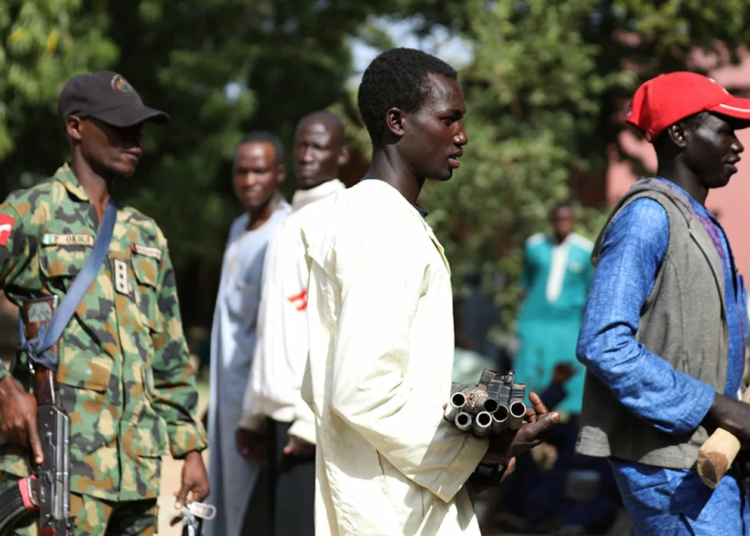After the promise by the federal government to end banditry by December 31 this year, there seems to be a rise in banditry in some parts of the north in recent days.
On Wednesday, bandits killed 14 persons and abducted 81 others in Sokoto and Katsina states.
In the eastern part of Sokoto State, 13 persons were killed and 73 abducted, including women and children. The attacks took place in different communities in Sabon Birni, Gada, and Goronyo local government areas.
Also, according to reports, bandits have killed no fewer than four farmers and abducted over 100 others, including women and children, from 14 communities in Mashegu and Rafi local government areas of Niger State in the last three weeks.
Similarly, some bandits on Christmas Day reportedly killed one person and kidnapped no fewer than 45 in Angwan Aku, Kajuru Local Government Area of Kaduna State. It was learned that the attack took place while the Christian faithful were getting set to attend church services in celebration of the birth of Jesus Christ.
We also recall that in October, the Academic Staff Union of Secondary Schools (ASUSS), Kaduna State chapter, had alleged that bandits had killed over 10 teachers and kidnapped more than 50 others across the 23 local government areas of the state since January.
Less than a month ago, about 44 people were kidnapped by bandits from the Kanwa community in the Zurmi Local government Area of Zamfara State.
The Centre for Democracy and Development (CDD) estimates that at least 60,000 people have been killed in Nigeria’s 18 northern states in the last 10 years due to insecurity.
In a new report by CDD entitled “Multiple Nodes, Common Cause: National Stocktake of Contemporary Insecurity and State Responses in Nigeria,” it said in the Northwestern states of Jigawa; Kaduna, Kano, Kebbi, Sokoto, and, Zamfara about 14, 000 people lost their lives between 2011 and 2021.
No doubt, the military has recently recorded tremendous successes against the bandits and insurgents but more work needs to be done.
Just last month, security agencies killed a notorious bandit commander known as ‘Dogo Maikasuwa’ in Kaduna. Dogo Maikasuwa, also known as ‘Dogo Maimillion’ led a series of attacks and kidnappings of citizens plying the Kaduna-Kachia Road, and in communities within Chikun and Kajuru LGAs. He was one of the deadliest bandits leading other elements in terrorizing citizens of these areas.
Also in October, troops of the Nigerian Military attached to Operation Hadarin Daji neutralised one of the notorious bandit leaders in Zamfara. The bandit kingpin, identified as Ibrahim Chire, terrorised the Gando, Gwashi, Bukkuyum, and Anka areas of the state.
In the considered opinion of this newspaper, the renewed banditry in some northern states is worrisome and should not be allowed to continue.
These acts of violence have caused immeasurable suffering for countless families and communities, and we must take action to put an end to them.
The root causes of banditry and killings in Nigeria are complex and multifaceted. Poverty, lack of access to education and employment opportunities, and a lack of effective governance are all contributing factors. However, regardless of the underlying causes, the fact remains that these acts of violence must be stopped.
One of the key ways to address this issue is through targeted efforts to address the root causes of poverty and inequality. This could include investing in education and job training programmes, as well as improving access to necessities such as clean water, healthcare, and electricity.
Additionally, the government must take strong action to ensure the safety and security of its citizens. This could involve increasing funding for law enforcement and security forces, as well as implementing more effective strategies for combating banditry and other forms of violence.
Consequently, the government and civil society need to work together to address this issue. Community-led efforts, such as grassroots peacebuilding initiatives and programmes that promote dialogue and reconciliation, can be crucial in preventing violence and promoting long-term stability.
Finally, ending banditry and killings in Nigeria will require a multifaceted approach that addresses both the root causes of violence and the need for stronger security measures. It is a daunting task, but it is one that we must undertake if we hope to build a safer and more prosperous future for all Nigerians.





